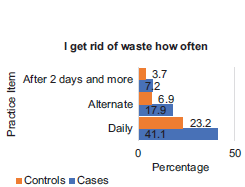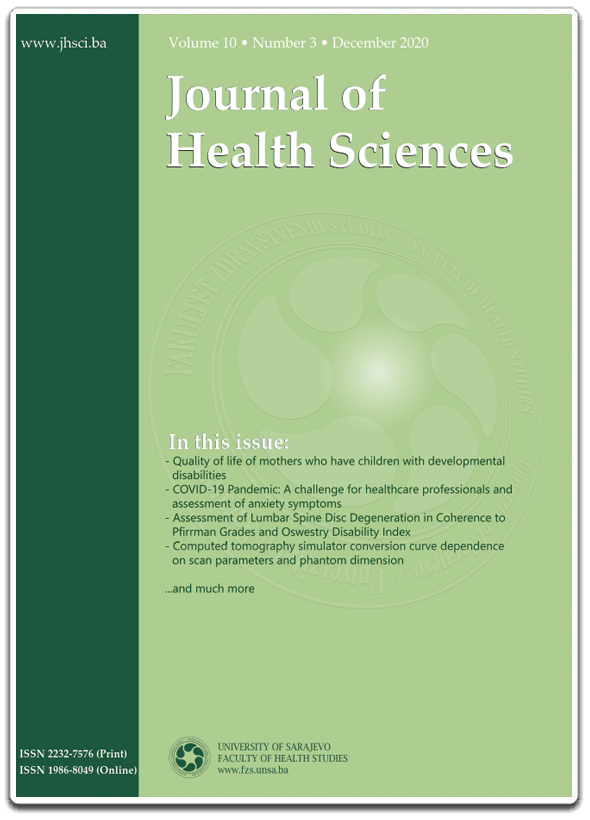Knowledge, attitude, and preventive practices of leptospirosis affected populations in South Andaman, India: A cross-sectional study
DOI:
https://doi.org/10.17532/jhsci.2023.2145Keywords:
Leptospirosis, Knowledge, Attitude, Practice, Rural populationAbstract
Introduction: Leptospirosis is the most common reoccurring zoonosis worldwide. Climatic conditions in tropical and subtropical regions are optimal for Leptospira survival. The pathogen thrives in flood-prone slum settlements of underprivileged areas where waste, open sewers, and standing water are present.
Methods: A descriptive cross-sectional study using universal sampling methodology was conducted to determine associations
between sociodemographic variables and knowledge, attitudes, and practices of leptospirosis-infected individuals compared with a control group from the South Andaman population.
Results: Eight hundred and one (388 cases and 413 controls) subjects were included in the study. Overall, 61.5% of the participants were male, while the main occupation of 43.94% of the subjects was farming or agricultural work. Multilogistic regression assessing the likelihood of good knowledge about leptospirosis showed that leptospirosis-positive subjects were more likely to have good knowledge (adjusted odds ratio [AOR]: 3.5 [95% CI: 2.59–4.97], p < 0.001), better attitude (AOR: 97.30 [95% CI: 41.72–226.9], p < 0.001] than leptospirosis-negative subjects, male population groups were also more likely to have a good attitude (AOR: 3.03 [95% CI: 1.94–4.73], p < 0.001), and those whose main occupation is farming were more likely to have a good attitude (AOR: 3.59 [95% CI: 2.31–5.56], p < 0.001). The leptospirosis seropositive group was more likely to have good practices (AOR: 5.80 [95% CI: 3.58–8.73], p < 0.001), rural residents were 88% less likely to have good practice levels than urban residents (AR: 0.12 [95% CI: 0.07–0.20], p < 0.01).
Conclusion: The infected group had better knowledge than the control group. The integration of knowledge and attitudes to maintain good practices, along with the provision of an adequate sanitation system, waste disposal system, and availability of essential personal protective equipment is necessary for disease control in these islands.
Downloads

Downloads
Published
License
Copyright (c) 2023 Ambreen Fatema, Manjunatha Ramu, Kannan Thiruvengadam, Ittoop Pulikkottil Sunish, Paluru Vijayachari

This work is licensed under a Creative Commons Attribution 4.0 International License.










